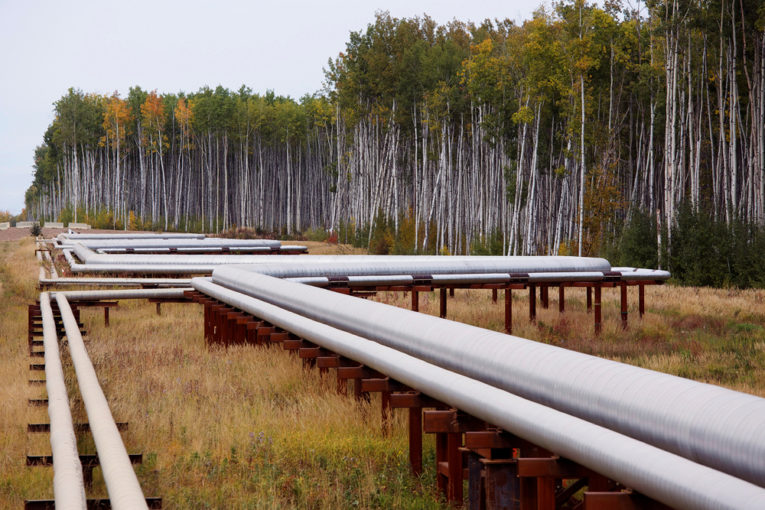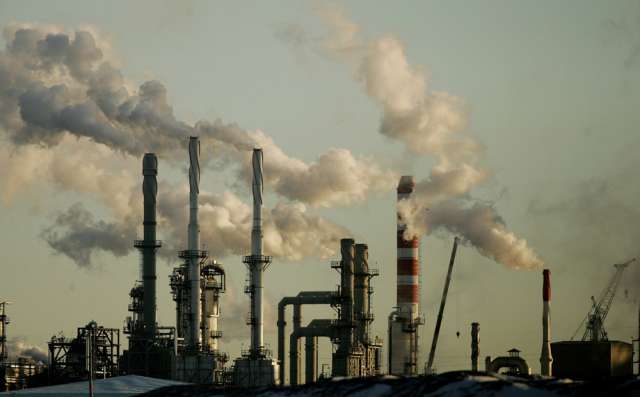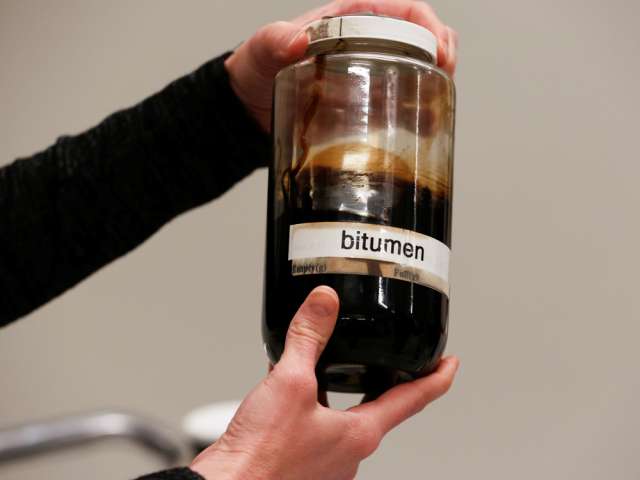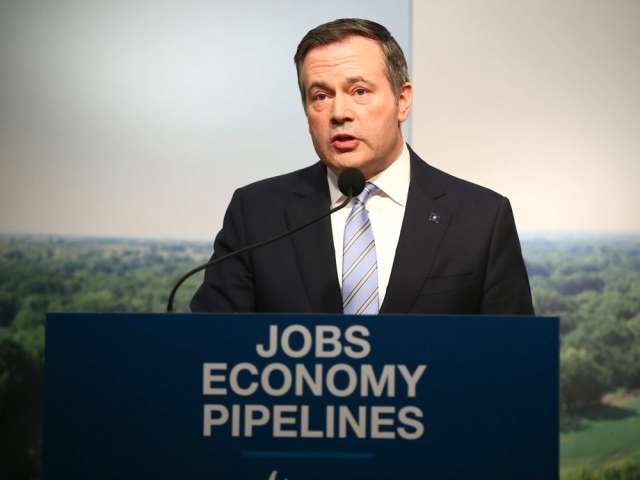
As the oil sector weathers an extreme downturn amid declining demand and increased supply, Canadian oil producers, with support from the Alberta government, are exploring whether to create a North American cartel to manage production and bring stability to the industry.
The idea holds currency among many smaller, independent producers, in Alberta and in many U.S. states, such as Texas.
A cartel could, in theory, function like the Organization for Petroleum Exporting Countries, or OPEC, which until recently had played the role of swing producer to stabilize prices.
Although analysts remain skeptical about the odds, Canadian officials, including from Alberta and the federal government, have started preliminary discussions with U.S. government officials, including Texas regulatory officials about forming a cartel to manage oil production in both countries.
“There’s actually been quite a lot of conversation about this,” said Tristan Goodman, president of the Explorers and Producers Association of Canada. “It’s actually been around for several weeks and I think folks are really feeling the pinch.”
A spokesperson for Alberta Premier Jason Kenney said he has been discussing the idea of a cartel for several weeks with various U.S. government officials and politicians, saying it was a matter of energy security.
“It’s time for North America to stand up against the OPEC dictatorships that continue to dump supply into the market in an effort to take North American producers out,” said Christine Myatt, press secretary for the premier.
On Thursday, Deputy Prime Minister Chrystia Freeland said she’s talked with U.S. Secretary of State Mike Pompeo about the disruption in the oil market caused by Russia and Saudi Arabia. She also noted that she is engaged with Kenney on the issue, noting that the Alberta Premier’s conversations with U.S. officials have been “very helpful.”
The impetus to form a cartel started ironically after OPEC injected volatility into the market in early March, when Saudi Arabia announced it would raise its production beginning in April. That hammered prices and immediately ramped up financial pressure on high-cost producers, particularly in North America.
It’s time for North America to stand up against the OPEC dictatorships that continue to dump supply into the market in an effort to take North American producers out
Christine Myatt
Grant Fagerheim, chief executive of Calgary-based Whitecap Resources, said that “it would take a monumental effort” to form such an organization, but it’s worth exploring.
On Thursday, Saudi Arabia signalled intentions to reverse course, and its state-owned news agency reported that the Kingdom wants OPEC and “other countries” to meet to restore balance to the oil markets.
Ryan Sitton, one of three members of the Texas Railroad Commission, which regulates the energy industry in that state, told Reuters he had a “really substantial, really exciting call” with Russian Energy Minister Alexander Novak. Sitton also said he texted Saudi Arabian Energy Minister Prince Abdulaziz bin Salman Al-Saud, to discuss the market sector collapse.
Whether a North American cartel is politically feasible is a complicated calculus.
Smaller, independent producers in Alberta, may see a cartel as a potential avenue for relief from a volatile market. But it’s less attractive to larger producers, some of which own refineries, and can profit even when oil prices drop.
The Canadian Association of Petroleum Producers noted in a statement this week that it’s illegal for producers to co-ordinate output.
“Only governments have this authority,” the statement said.

In theory, a cartel could decide to reduce production to rebalance supply and demand, in light of the coronavirus lockdown measures that have frozen economic activity. Analysts say oil storage capacity is rapidly disappearing and a backlog will keep prices low even after demand returns.
“With each passing day that the current imbalance holds, it yields a further 40-day hangover in terms of the excess global crude inventories that will need to be chewed through in the post-coronavirus world,” analysts from The Canadian Imperial Bank of Commerce wrote in a note on Wednesday.
In Alberta, curtailing production is not without controversy or history. In February 2019, for example, Imperial Oil Ltd., which is majority-owned by Exxon Mobil Corp., opposed the Albertan government’s decision to impose new limits on oil production, calling it a “drastic, dramatic manipulation of the market.”

Then, there are practical and legal barriers to establishing a North American cartel.
“I am very skeptical that this idea is going to go anywhere,” said Greg Priddy, director of global energy and Middle East at Stratfor Enterprises, a research consultancy.
Priddy said the companies most interested in a unified government intervention to cut production tend to be smaller companies whose operations are landlocked or who lack the ability to shop their product to multiple markets to command the highest price.
“I think the production cuts are coming, but they’re not coming from government action,” he said. “They’re coming from market forces and logistical bottlenecks. Unfortunately for Canada, Alberta has that in spades.”
I am very skeptical that this idea is going to go anywhere
Greg Priddy
The price of Western Canadian Select, which often trades at a discount to other oil benchmarks, had dropped below US$4 per barrel this week. It rallied on Friday after Saudi Arabia called for cutting global production, to US$11.46, but remains below the break even point for many Canadian producers. Meanwhile, the S&P Capped Energy Index is down roughly 59 per cent in the first three months of 2020.
For Canadian producers, the lack of pipeline access also limits the number of buyers. That’s how Alberta’s government this week rationalized a $1.1 billion pledge to help finance TC Energy Corp.’s long delayed Keystone XL pipeline, which would carry oil to the U.S. Gulf Coast where a number of heavy oil refineries are located.

Phil Skolnick, an analyst with Eight Capital, said the Keystone XL pipeline makes sense as a longer term play for Albertan energy producers, since it will help them obtain higher prices in the future, but other financing is likely not available right now.
Skolnick expressed skepticism that North American oil producers would launch a cartel, not least because building a legal framework could take months.
With a U.S. presidential election approaching in November, neither party is likely interested in spending political capital on something designed to raise the price of oil, Skolnick said.
“In a crisis right now, it seems to make sense, but once we get past this whole COVID-19, then the discussion seems to change,” he said.
Financial Post
• Email: [email protected] | Twitter: GabeFriedz
You can read more of the news on source
